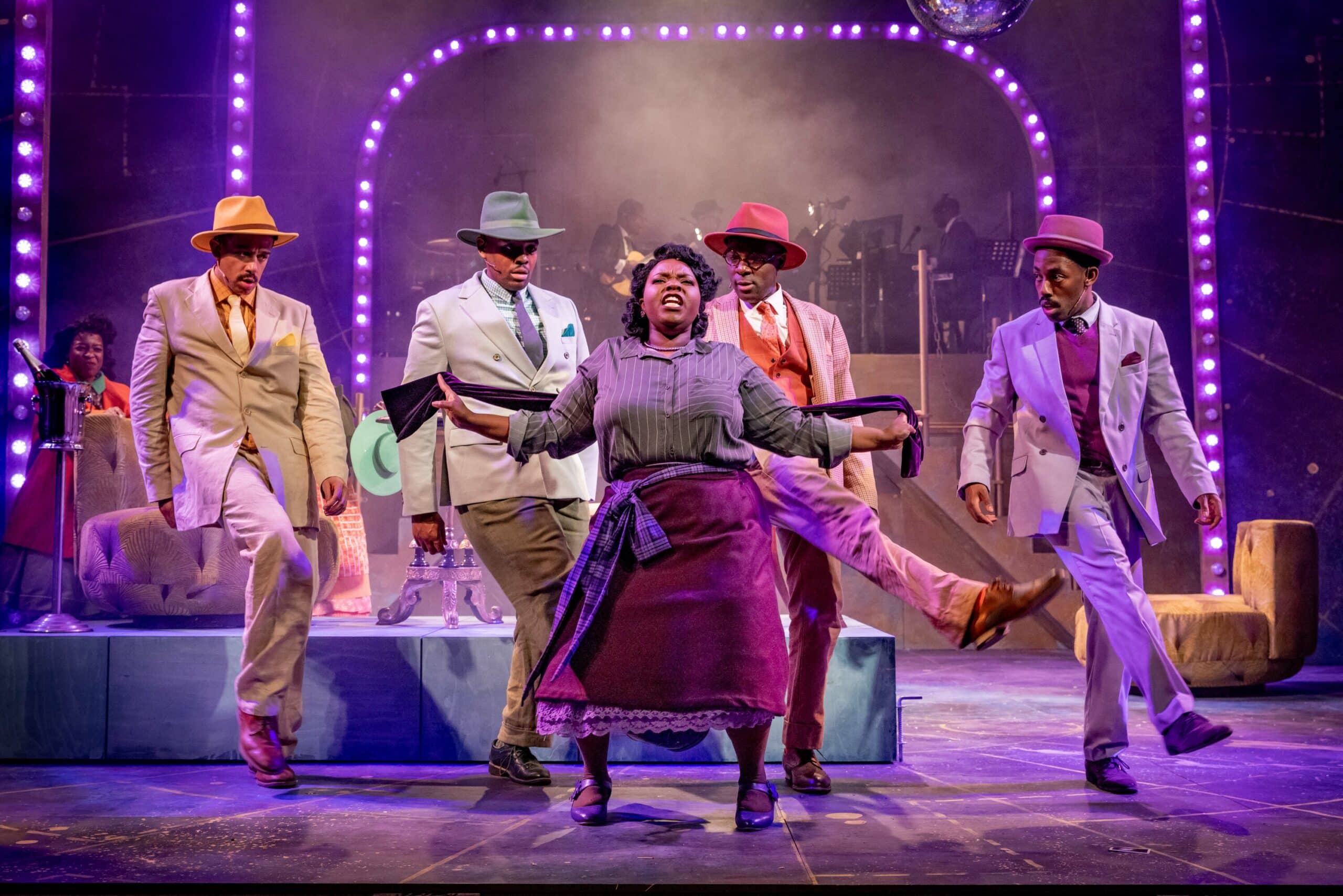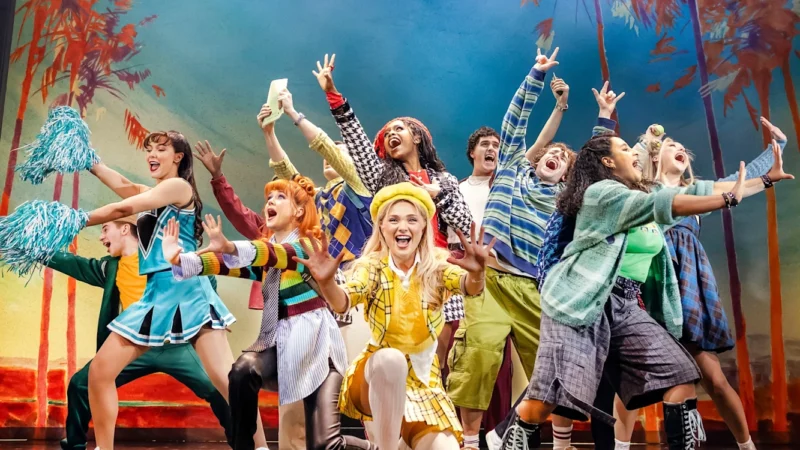Stratford East
2004 was 20 years ago, apparently. I only found this out (and was left aghast) when writing this review. My melted millennial mind still thinks that surely that must be the 90s, and I bet there are those of you out there thinking it’s the 60s. Putting aside the passing of time (as if we could) one positive is that it heralds the return of Stratford East’s larger-than-life musical The Big Life.
2004 vs 2024. What has changed? Regarding the Windrush generation (the basis for the musical) and the overall state of racism in the world, a shocking amount.2018 saw the government’s shameless reversal of the hard-won rights of many of the ordinary people who were invited here in 1948 and onwards. Traveling across the sea on the ship Empire Windrush to live/work and help restore a war-torn Britain. 83 cases at least were deported in an ongoing scandal, an ugly modern addition to Britain’s colonial legacy. 2013 also saw the Black Lives Matter movement exposing police and governmental racism in the US and UK again inextricably linked to this country’s colonial actions. Heightened awareness for the sadly durable and snaking ropes of racism has occurred in the two decades, and many positive steps have been taken. But certainly not the expected unbroken upward trajectory envisaged at the musical’s premiere in 2004.
Putting politics aside (as if we could) the late great Philip Hedley (Stratford East Artistic director) brought together a panel of creatives to birth The Big Life. It was Tameka Empson and Paul Sirett’s idea of working the Windrush movement into the framework of Shakespeare’s Love Labours Lost. Paul Jospeh’s bouncing ska score and Clint Dyers original direction gave life and quick steps to the concept. Now Tinuke Craig’s resurrects their combined magnum opus once more to swing out into the faltering East London sunshine.
Writer and original Mrs. Aphrodite Empson reprises her role. Transforming blackouts into uproarious standup routines distracting us as wobbling set pieces shudder in the darkness. A respectable West Indian lady (in theory) with many opinions on the government and love, she leans over conspiratorially from her box stage left. Later she launches herself onto the stage as the mythic architect of crossed stars as the second act features more divine intervention.
But we’ve not even discussed the first act yet, sorry overexcited theatre critic. We start on the Empire Windrush and the excitement of those aboard. Bernie (Side-splitting: Nathanael Campbell) Denis (plaintive: Khalid Daley) Ferdy (angel-voiced: Ashley Samuels) and Lennie (Karl Queensborough) make a bet with another god in human disguise The Admiral/Eros (crooning and swooping: Danny Bailey) to forgo wine and women for 3 years. Focusing on making it in their new home (In Inglan being one of the big-ticket songs). Sybil (sensational: Gabrielle Brooks) Kathy (Blasting: Juliet Agnes) Mary (Leanne Henlon) and their newfound landlord in London Zuleika (heartbreaking: Rachel John) have different ideas. A battle of the sexes and a struggle for love ensues, a soothing soup of predictability that’s needed in these soggy “spring” days.
Shakespearean misunderstandings, high jinks, and obstacles are put in the way of the 8 lovers by life and our two earth-bound immortals, but The Big Life has an extra complexity. Invited to the UK and then treated with fear and hatred, the show captures the themes of Andrea Levy’s book Small Island (which theatrically rose to National Theatre fame). Capturing the same heartbreaking reality, with add musical theatre might. The disconnect between the vibrancy of the West Indies and the drab closed-mindedness of the UK in the 40s is visualised with dexterity by Jasmine Swan’s set/costumes. Greyscale for London and its huddled inhabitants, bright reds, and vibrant pastels for each character, and colour correspondence for the un/lucky lovers. Details such as the dimming of colours when the men look for work and attain jobs below their education and deserts and a claustrophobic tube scene in washed-out and stained hues. Zuleika’s bursting and glowing living room is such a beacon of bright warmth, a haven to the loneliness and isolation of these early immigrants. Reminding us of the strength of the African diaspora.
Putting aside racism for a second (as if we could) Ingrid Mackinnon’s choreography keeps the story skanking along. Coupled with the hilarious and vocally gifted performances throughout promises a horn-blasting good time. Fresh, and vividly relevant today as it was 20, or even 80 years ago. There is still such a fight needed against prejudice in the UK and abroad. Yet the search for a big life by those early men and women outweighed, in the end, the frigidity of the land they arrived in. The warmth they brought with them has continued undimmed, enriching, enterprising and enchanting these “blessed” isles.
Grab the next big thing by the tickets, Lif



